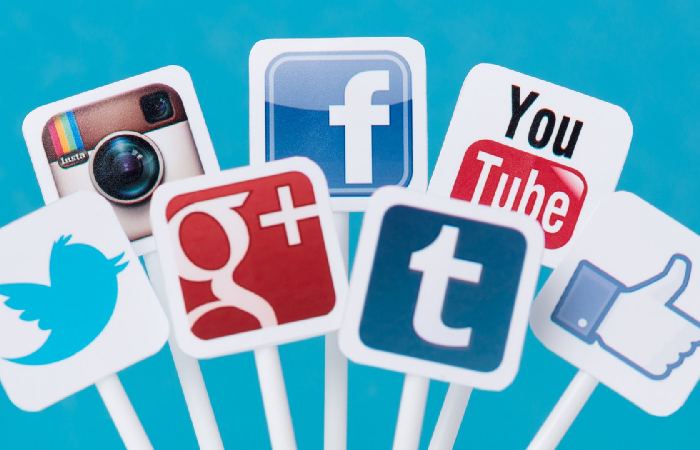Social networks are digital platforms connecting people based on common interests, activities, or relationships, serving as channels for information exchange. Whether sharing content publicly or privately, mastering these networks is essential for building a successful personal brand online.
What are Social networks?

Social networks are online platforms that allow users to create profiles, share information, and connect with other users. These platforms typically enable users to post text, photos, videos, and other content and interact with others through comments, likes, shares, and messages.
Social networking
social media networking refers to using online platforms to connect and communicate with other people. These platforms enable individuals and businesses to share information, build relationships, and engage with others on a global scale.
What are social networking sites?
Some popular social networks include Facebook, Twitter, Instagram, LinkedIn, Snapchat, and TikTok. Each platform has unique features and user base, and it is used for various purposes, such as socializing, networking, entertainment, and information sharing.
Business Social Networking
Social networking refers to using online platforms to connect and engage with other professionals, expand professional networks, and create business opportunities. These platforms enable businesses to promote their brand, find potential clients, and share industry insights.
Types of social networks
- Personal social networks.
- Entertainment social networks
- Professional social networks.
- Niche social networks.
Benefits of social networking
There are many social networking benefits, including:
- Increased connectivity
- Enhanced communication
- Improved information sharing
- Expanded opportunities
- Increased brand visibility
- Enhanced customer engagement
- Access to new perspectives and ideas
However, social networking has become integral to modern life and benefits individuals and businesses.
How to Build a Successful Personal Brand on Social Media?

Building a successful personal brand on social media takes time, effort, and strategy. Here are some tips and tricks to help you get started:
Define your brand: Decide what you want your brand to represent and what values and messages you want to convey through your social media presence. Consider your niche, target audience, and unique selling points.
Choose the right platforms: Different social media platforms attract audiences and serve other purposes. Choose the ones that align with your brand and goals.
Be consistent: Consistency is vital when building a personal brand on social media. Develop a consistent voice, visual style, and posting schedule to help establish your brand’s identity and keep your audience engaged.
Engage with your audience: Social media is a two-way conversation. Respond to your audience’s comments, messages, and mentions, and actively engage with them through likes, shares, and comments.
Provide value: Share informative, inspiring, or entertaining content with your audience. It can help establish you as an expert in your field and build trust with your followers.
Collaborate with others: Collaborating with other influencers or brands in your niche can help expand your reach and grow your following.
Measure your success: Set goals for your brand on social media, and track your progress using metrics such as engagement, reach, and follower growth. Use this data to adjust your strategy and improve your performance.
Building a successful personal brand on social media takes time and effort, so be patient and persistent.
The ten most important social networks

Although in recent years, some think it has gone out of style, the truth is that Facebook’s dominance in active users is overwhelming.
It exceeds 2.5 billion active users worldwide. As it is a public social network, it can be adapted to the strategies of various brands, especially B2C.
YouTube
YouTube exceeds 2 billion active users, and over 1 billion videos are watched daily. Undoubtedly, it is the world leader in video format,
one of the most exciting online marketing content types. Uploading your videos to YouTube can offer you significant advantages in terms of visibility
WhatsApp is the most popular messaging social network worldwide, with around 2 billion active users. It has had a significant influence worldwide, to the point that it has changed how we communicate.
Moreover, the great strength of WhatsApp in online marketing is its speed and convenience as a customer service channel.
Facebook Messenger
Facebook Messenger has an active user base of over 1.2 billion seconds and is the most used instant messaging application. It should be noted that it is integrated with Instagram messaging.
At the level of social media marketing, Facebook Messenger is a channel with great potential for brands with a Facebook page.
Instagram is the fifth social network worldwide with active users since it exceeds 1.2 billion. It is a social network marked by the phenomenon of influencers since
it is one of the most used platforms to promote brands, and in which this type of content enjoys more user acceptance
Weixin/WeChat
WeChat is a relatively unknown Chinese social network in our country, but it also has a base of more than 1.2 billion active users…It has multiple features, including a messaging service, geolocation, official
or verified accounts, options to share images, states, links, and other elements to selected contacts, a payment system, and even a version for professional use similar to Slack. For brands
TikTok
We arrive at the fashionable social network TikTok, which far exceeds 600 million active users and is based on sharing short video content, often in “playback” format.
His popularity exploded, especially during the confinement caused by the coronavirus pandemic in 2020.TikTok is a network that is particularly suitable for connecting with younger users.
In eighth place, we have QQ, which exceeds 600 million users and is one of the most popular in China.
In recent years it has been losing strength compared to WeChat, but it is still an option for companies doing business in China.
Dou-jin
Douyin is around 600 million active users. It is often referred to as “Chinese Tik Tok” since, like this network, it allows you to create and share short music videos. Its relevance in our country is closely linked to the world of football.
In 2020, it signed an agreement with La Liga that Douyin undertakes to offer quality content from Spanish and its clubs, increasing its reach beyond our borders.
Sina Weibo
The Chinese social network Sina Weibo is closing the top ten, with more than 500 million active users. It has many features in common with Twitter.
Such as the 140-character limit per message, the sign to mention other users, the use of hashtags, the options to republish content and add it to favorite lists, and the verification of user accounts.





